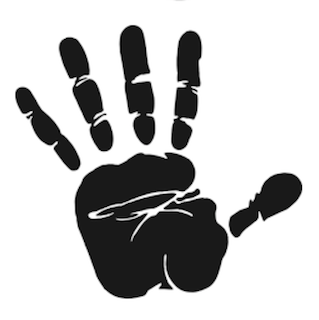 In recent months there have been scores of accusations of sexual misconduct by famous, rich, and/or powerful men. A social media movement labeled #metoo identified victims of outright violent rape and other sexual assault, unacceptable sexual harassment by those in power, all the way to accounts of being whistled at, flirted with, or ogled on the street. While sexual assault or using your power to coerce someone into sexual activity is NEVER acceptable, where is the line on what is abuse, misconduct, assault, or harassment, and is it in the eye of the beholder?
In recent months there have been scores of accusations of sexual misconduct by famous, rich, and/or powerful men. A social media movement labeled #metoo identified victims of outright violent rape and other sexual assault, unacceptable sexual harassment by those in power, all the way to accounts of being whistled at, flirted with, or ogled on the street. While sexual assault or using your power to coerce someone into sexual activity is NEVER acceptable, where is the line on what is abuse, misconduct, assault, or harassment, and is it in the eye of the beholder?
It is not my place to tell anyone how to feel or to imply in any way that his or her feelings are wrong or invalid. However, I do question, as a lifelong student of human behavior, how we got to a place where every flirtation, miscommunication, proposition, or regretful sexual activity is labeled abuse and put in headlines. Most recently, elderly, disabled George H W Bush made headlines for touching women’s rear ends and making a poor joke about it. He apologized, and I respect that. But is this news? Assault? Harassment? Bush is surely no physical threat to anyone, nor is he in a position to make or break any careers. Why did, “Hey, old man, take your hand off my rear!” not suffice?
While men are victims of sex assault as well – most recently the actor Anthony Rapp revealed that Kevin Spacey had come on to him at a party when he was underage and they were both acting in a play – women are victimized far more often. A person of any gender can victimize, harass, or otherwise abuse a person of any gender, regardless of sexual orientation, but we most often hear about women who are victims of men’s assaults.
Flashback nearly 100 years to the streets of Dyker Heights. My grandmother, one of the prettiest teenagers walking along 13th Avenue, would purposely don a tight fitting top as she and her friends walked along the avenue laughing and socializing. She purposely dressed to impress my future grandfather as he hung out with his friends. Most likely he called out something along the lines of, “Hey, Tilly! Hubba Hubba!” and his friends gave him a shot in the arm if she responded or teased him if she appeared to ignore him. This dance led to a marriage of 52 years.
Somewhere between 1925 and now the rules have changed and become confusing. Women know that they don’t have to be passive; they can call out to men, approach them, and ask them out. I’ve seen girls in my office who watched “Sex in the City” and felt empowered to embrace their budding sexuality, dealing with the mixed feelings that might get stirred up when trying to figure out just how much and with how many boys to try out said sexuality. The mistakes were theirs to make and deal with.
We live in an amazing time to be female. If not for the Electoral College, we would have a female president right now. Women are showing up more and more in the C-suites. We have three female Supreme Court Justices, more women are entering politics, and more women are directing, producing, and demanding high salaries in Hollywood. Thursday night television is owned by Shonda Rhimes – not just a woman, but a woman of color – the first time any one producer has monopolized a night of prime time since Norman Lear. But side by side runs a narrative that I find, as a psychologist and feminist, disturbing. A narrative that implies that women have no power and are constantly victimized.
Cases in point: A couple of years ago, Sofia Vergara, the sexy Latina actress from “Modern Family” was in a skit during an awards show in which she was basically compared to an inanimate trophy and her sex appeal and beauty were played up exclusively. Feminist groups were loud and critical, insisting that she was forced into this by the Hollywood patriarchy. Vergara immediately lashed out and told her critics to get a sense of humor and a life.
At the time, Sofia Vergara was the highest paid actor on television, male or female. She made a living on her buxom figure, playing a sometimes ditzy, often hot blooded, trophy wife. (There’s the wink to the audience…. “I play a trophy wife on TV and a trophy in this skit.”) I have a hard time believing that the highest paid anything, of either gender, would engage in something she found offensive. Vergara has laughed all the way to the bank by giving the audience what it wants. Who’s an oppressed victim of the patriarchy? Vergara is obviously a funny, witty, and shrewd businesswoman. To flip the script and peg her for a victim baffles me. It also cheapens the experiences of those who truly do feel forced into pornography, sex trafficking, or sexual favors due to a power differential, poverty, or legal status.
More recently, Serena Williams, arguably the best athlete of her generation, posed in lingerie in a magazine. She looked sexy, strong, and beautiful. Again, given her success, power, and wealth, I would doubt that she stripped to her skivvies unless she wanted to. Like Vergara, there was backlash, with many people presuming she had been forced into such sexy pictures, or expressing disappointment in her decision to do the photo shoot (similar outcries occurred last year after the US Gymnastics Team also posed for sexy photos). I saw the photo spread as incredibly empowering and inspiring to young girls. Williams, like many female athletes, is not built like a fashion model or movie star. She is a muscular girl who doesn’t fit the beauty ideal. I think if Serena makes one tall, muscular, or athletic little girl see that she can be sexy and glamorous as well as strong and athletic if she chooses, then it’s OK.
In both cases, as well as the outcry that Wonder Woman’s outfits are too provocative while ignoring the body hugging spandex of most male superheroes, the message seems to be that if a woman plays up her sexuality it’s a bad thing that she was forced to do. If Michael Phelps poses in his Speedo, women swoon, and he’s praised for his lean, hot, athletic physique. If Serena Williams poses in lingerie, she was implicitly or explicitly forced. She couldn’t possibly want to flaunt her sexuality otherwise. Young girls see their favorite singers performing on national television wearing barely more than dental floss and three gauze pads, owning this over-the-top sexuality, but these messages about sex are so confusing I don’t know how girls of today are supposed to find their sexual identity and figure out what they’re comfortable with, let alone communicating their desires and boundaries to men or dealing with the whistles and stares of men who are attracted to them.
In 2015, rock star Chrissie Hynde, frontwoman for the Pretenders, whose tough persona and musical talent have been iconic since the 70’s, wrote her autobiography. In it she discussed being gang raped by a group of Hell’s Angels, one of whom she was dating. While not excusing the crime, she blamed herself for being in the situation she was in, comparing it to “playing with fire.” She was 21, high on drugs, acting flirtatiously, and had put herself in harm’s way by hanging out with people she described as having things like “I {heart} rape” on their clothing. She felt lucky she wasn’t killed, and took responsibility for being dangerously naive. She took it a step further in suggesting that women should take some responsibility for their behavior, way of dressing, heavy drinking, or other activities that may send the wrong message or put them in danger. Needless to say, she was vilified and her views were described as “anti-woman.”
Chrissie, often brazenly outspoken, may have taken it too far. But I can’t blame her for suggesting that women avoid the role of passive victim and rather take responsibility for their actions and for the effects of those actions. If I stand on the corner waving my money and jewelry around and I get robbed, this logic would suggest that perhaps I rethink hanging around sketchy neighborhoods flaunting my valuables. But to apply that same logic to a college party where girls knowingly drink punch laced with sedating drugs like Xanax, or invite strangers to their dorm rooms for whatever transpires, sparks cries of victim shaming, and insistence that it’s the oppressive patriarchy’s fault. No one should ever steal my belongings or assault me in any way, even if I wear diamonds in a dark alley or walk naked down Route 9 – that is not in question. However, I don’t think it’s helpful to insist that if anything happens it NEVER could have been prevented. Isn’t that why we weren’t allowed to vote or own property, because we were deemed too irresponsible, impressionable, and weak to be trusted? A media mogul has no business showing up in a towel and demanding massages or sexual favors. But is meeting in a hotel room the smartest choice to make in the first place? The “casting couch” has been known to the general public for generations, and both female and male actors performed sexual favors in order to advance in their careers. Disgraceful as some people’s behavior can be, are we really surprised that there is an epidemic of sexual harassment going on when the culture winks and turns the other way when people meet in hotel rooms, over drugs and alcohol, or at parties where people go to back rooms to have sex?
I’ve seen boys in my office, sadly enough, who, during their clumsy attempts at dating have been on the receiving end of accusations and vilification. One boy always stands out. At a party where the kids were experimenting with alcohol, some for the first time, a female classmate became more than flirtatious with him. She came into his personal space, sat on his lap, and was provocative. When the teenaged boy, now aroused, responded in kind with a grope, she realized she was in over her head and cried foul. The boy was labeled a “rapist,” the girl’s parents threatened action, and the boy’s parents had to consult with an attorney to defend him against his alleged sex crimes. To me, this was a teachable moment wasted. Neither child, in my mind, was guilty of anything except inexperience and horniness. The girl, in trying out her budding sex appeal, regretted her forwardness as soon as it went in a direction that made her uncomfortable. The boy, equally inexperienced, was confused by the girl’s behavior. I would have sat both kids down and discussed appropriate behavior and boundaries, consequences of actions, and sexual arousal without shame or vilification. Instead the boy was pegged a predator and the girl a victim. Neither role was accurate, and in fact, if the genders were reversed and the boy were sitting in the girl’s lap, behaving provocatively, he would have been blamed for what ensued.
By taking all responsibility off the girl, her parents and peers placed her in a role of helpless victim when she was neither. She became uncomfortable, yes, and had every right to toss a flag on the play and take back 10 yards, and the boy needed to comply, regardless of his arousal, but she was not passive, nor was he predatory. The current narrative doesn’t allow for these nuances. I could sexually harass a male student or supervisee, but would be less likely to be accused or have the situation investigated than a male professor hitting on a young coed. Not to mention that most often in this dialogue, homosexuality is ignored, so that I’ve taught at colleges that insisted I meet with male, but not female, students with the door open. That assumes a heteronormative attitude and ignores the fact that I could suggest that a student of any gender perform sexually for a better grade and it would be equally wrong.
We know that as young as grade school, girls learn to be passive and not speak up. Thank Snow White, the patron saint of lying in wait for a man’s kiss of awakening. They often need others to speak up first and then the floodgates open. Whether it be Bill Cosby, Harvey Weinstein, or Marty in Accounting, it often takes a group of women to stand up to abuse. And maybe that’s part of the problem. Maybe if more women confronted the men in real time things would change. Not only does silence allow abuse and manipulation to continue, but when it comes out 30 years later it can sound like a chorus crying wolf and looking for lucrative lawsuits, regardless that this is not likely the case. Whether it be sexual harassment, racist jokes, or other things that make us uncomfortable, why are women so hesitant to open their mouths and communicate their discomfort? Waiting and then going to the press rather than hitting it head-on implies needing help from outside rather than being able to handle it oneself. I repeat, what is to be gained by reporting a 93-year-old disabled man who seemed perfectly willing to apologize if asked?
Rising power of previously oppressed minorities scares those who feel they are losing their positions. This is certainly true today as more women are going to college, younger women are making more money than their husbands, and women are asserting their sexuality, power, confidence, and talent in board rooms, on tennis courts, in Hollywood, and elsewhere. Terrible things do happen to people such as assault and harassment, sexual and otherwise, often intended to keep a person in a position of submission. But sometimes there is a two-person dance in encouraging flirtation, dirty jokes, or even in the decision to trade sex for a job. In addition, there are women who choose to dress provocatively, pose or dance nude, or work as sex workers, and that’s their choice. To peg all who do as victims, keeps us in a role I don’t really think we want. We should question the established patriarchy that benefits from victims rather than nasty women who nevertheless persist. And I think that’s what we want to teach young girls, to express, stand up, persist, and take charge and responsibility. What we don’t want is every situation that makes anyone uncomfortable to be defined as criminal, but to stop inappropriate behavior as it happens. It’s a very fine line with no easy solutions.
Barbara Kapetanakes, Psy.D. practices psychotherapy in Sleepy Hollow.







